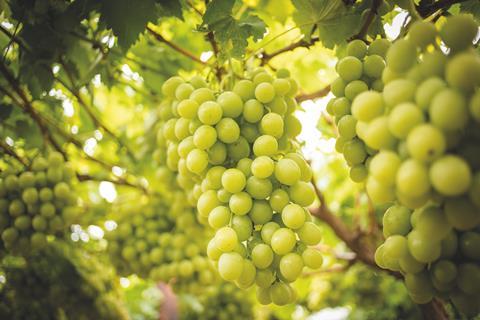Difficult times in the opening month of the year remembered as the South African table grape industry retires to take stock and plan for next season
During the 1980s and 1990s conventional reefers vessels left the port of Cape Town on a weekly basis to take regular supplies of South African grapes to Europe and the UK. As the century turned, containers had almost wiped out the old conventional business totally.

This season it almost sounded like a return to the ‘good old times’ as the table grape export industry, along with stonefruit exporters, had to turn to conventional specialised reefer vessels to bring relief to a situation which saw millions of cartons of fruit stranded in South Africa.
Jacques Ferreira, Sati’s commercial affairs manager, recalls the tough times of past grape export seasons in early January.
“Two of the lowest points in the 2023/24 table grape export season were probably the delays of the MSC Mattina and the Santa Clara,” he explained.
”During week 52 the MSC Mattina, which carried almost 500,000 cartons of table grapes destined for Canada and the US, experienced significant delays due to crane breakdowns at the Cape Town Multiple Purpose Terminal (CTMPT).
”During week 2 the Santa Clara, which carried more than 4m cartons of table grapes, was delayed, and almost forced to leave more than 600 reefers of fruit behind,” said Ferreira.
Conventional reefers moved to centre stage – and alternative ports had to be considered. A total of 14 conventional vessels exported table grapes during the past season between weeks 48 and 13, with two conventional vessels sailing ever week during weeks four to nine.
A total of 7.1m cartons of table grapes were exported via conventional vessels, equating 9.6 per cent of total volumes, while 7.8m cartons were exported from Port Elizabeth, representing 10.6 per cent of volumes.
Both table grape and stonefruit growers used these methods to get their fruit out of the country. Shipping via Port Elizabeth is a costly matter for exporters. It is a road journey of 800km with the turnaround times for freight operators also significant.
Prior to the season few exporters considered conventional reefers if they could avoid it. If all goes well the door-to-door option offered by containers is just too smooth and attractive, favoured by all. The conventional reefer option was also seen as more expensive.
However, in situations such as the congestion in Cape Town, new truths emerge. What do you call expensive if it is the only option to get your fruit to the market.
This set the industry up for some serious discussions during the winter. Logistics service providers say wind and the volume to be shipped will determine where the fruit will be loaded, for some time to come. It is hoped that a new proposed logistics model which is being developed, will help with these decisions.
It is believed that conventional reefers will in the interim play a significant role in shipping South African table grapes and stonefruit, as it does in the very successful Summer Citrus programme to the US.
Then there are also some prayers that the port authorities will get their act together and the port of Cape Town can return to its former glory days.
“What else can we do,” asks veteran Hex table grape grower Leon Viljoen. “Build and run our own port, perhaps?”
The bottom line is that delays on the landside are devastating for orderly marketing and detrimental to delivering the best quality products. There is much for growers to contemplate.



